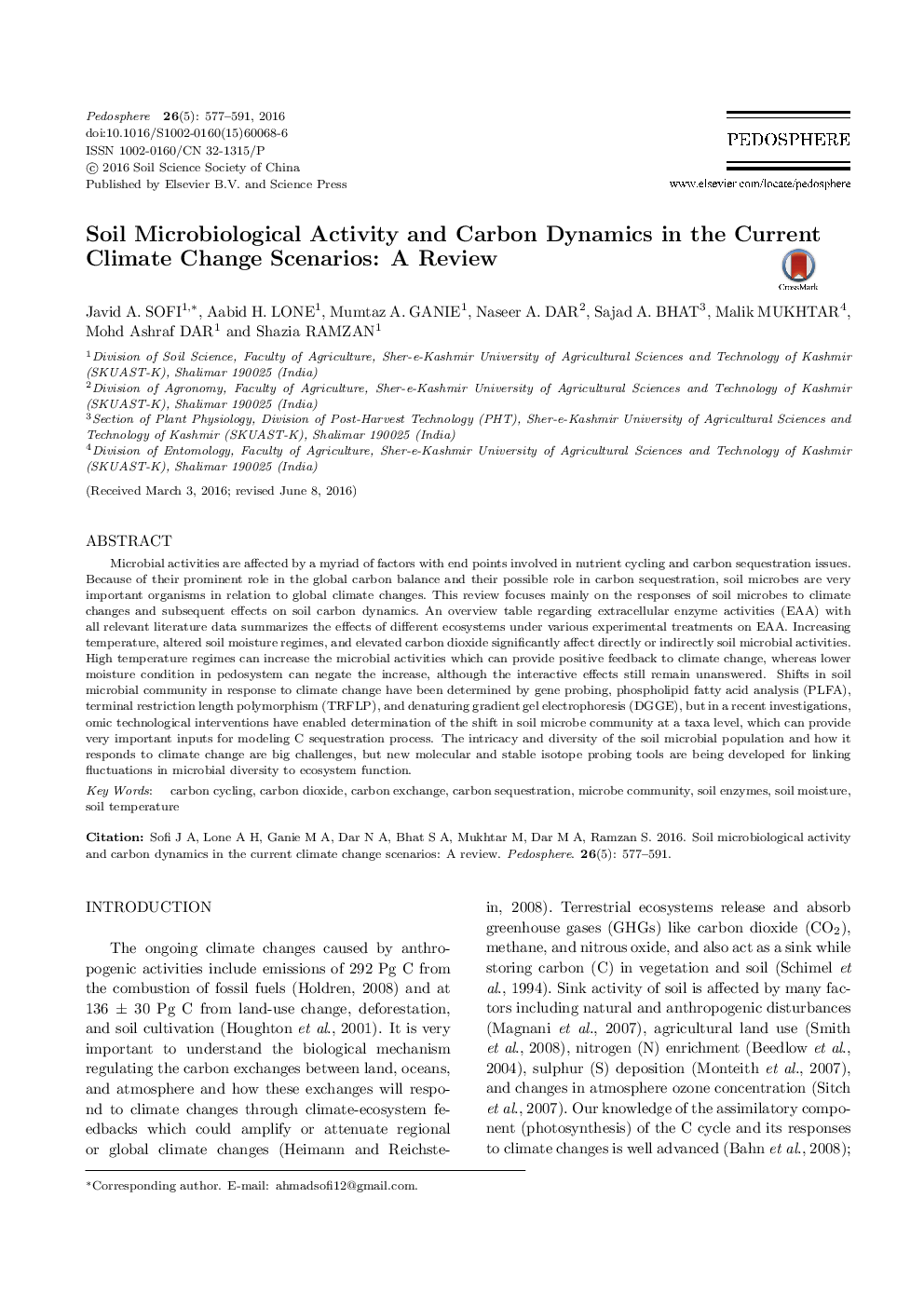| Article ID | Journal | Published Year | Pages | File Type |
|---|---|---|---|---|
| 4581154 | Pedosphere | 2016 | 15 Pages |
Microbial activities are affected by a myriad of factors with end points involved in nutrient cycling and carbon sequestration issues. Because of their prominent role in the global carbon balance and their possible role in carbon sequestration, soil microbes are very important organisms in relation to global climate changes. This review focuses mainly on the responses of soil microbes to climate changes and subsequent effects on soil carbon dynamics. An overview table regarding extracellular enzyme activities (EAA) with all relevant literature data summarizes the effects of different ecosystems under various experimental treatments on EAA. Increasing temperature, altered soil moisture regimes, and elevated carbon dioxide significantly affect directly or indirectly soil microbial activities. High temperature regimes can increase the microbial activities which can provide positive feedback to climate change, whereas lower moisture condition in pedosystem can negate the increase, although the interactive effects still remain unanswered. Shifts in soil microbial community in response to climate change have been determined by gene probing, phospholipid fatty acid analysis (PLFA), terminal restriction length polymorphism (TRFLP), and denaturing gradient gel electrophoresis (DGGE), but in a recent investigations, omic technological interventions have enabled determination of the shift in soil microbe community at a taxa level, which can provide very important inputs for modeling C sequestration process. The intricacy and diversity of the soil microbial population and how it responds to climate change are big challenges, but new molecular and stable isotope probing tools are being developed for linking fluctuations in microbial diversity to ecosystem function.
